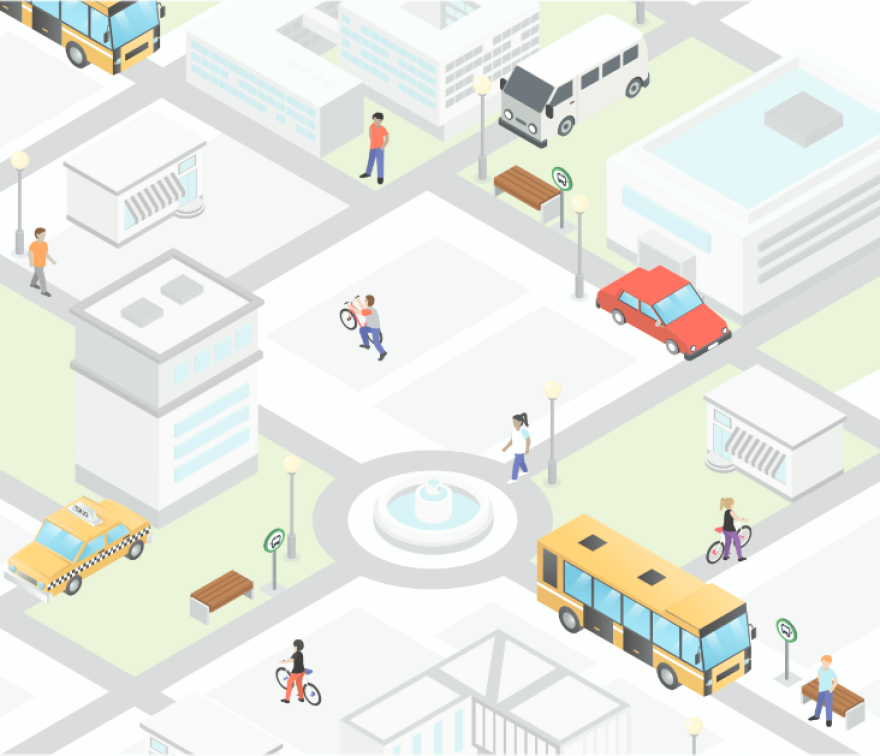Every day, thousands of people depend on Milwaukee’s bus system. Despite dozens of bus lines, there are many existing jobs that workers just can’t reach easily without a car.
Policy experts call that challenge: the last mile problem. Milwaukee-based Public Policy Forum just released a report that examines how it's felt here. The Last Mile: Connecting Workers to Places of Employment finds that the last mile challenge is especially evident in suburban areas where jobs are most dispersed and difficult for public transit to serve.
Public Policy Forum senior researcher Joe Peterangelo says that a lot of Milwaukee's transit problems stem from misuse of land. "It's really past land use unfortunately that has caused a lot of these issues, but now we have what we have and so we're looking for ways of connecting the areas as well as we can."
The report analyzes options for connecting the gap in transportation for Milwaukee's regional workforce, with emphasis on Milwaukee residents seeking employment. After examining different national strategies, Peterangelo says Milwaukee would benefit from multiple organizations working together, versus making the issue an MCTS-only problem.
One prominent last mile solution, he says, is increased bicycle riding and sharing. In addition to residents using their own bikes and Milwaukee County bus racks, Bublr Bikes has also implemented a partnership with MCTS to supply more bike stands at bus stops.
Public Policy Forum found flexible transit to be another common strategy. "There are a couple hundred transit systems that provide flexible services, which means that the bus routes have flexibility to go off of a set path," Peterangelo explains.
While it may seem counterproductive to go off of a set route, pick up and drop off requests are submitted in advance through mobile apps. Some companies simply connect with regular bus routes, but often smaller buses or vans are provided to scale to the demand.
"We're seeing a lot of experimenting right now with ride hailing companies, like Uber, Lyft and taxi companies," Peterangelo says. Subsiding rides in some areas to connect people to public transit could prove to be an ideal solution for Milwaukee, he says.
However, a key obstacle Milwaukee faces is the lack of regional cooperation and funding; which, Peterangelo points out, most large metro areas have for transit.
"We think that this could be actually an opportunity in some places to breakdown some of those barriers by creating solutions in areas where it might involve crossing a county boarder, it might involve municipalities being involved in developing solutions as well," he says.
Peterangelo adds that before flexible transit or ride-hailing programs are implemented, the City of Milwaukee needs to keep land use in mind in order to create a sustainable system for the future. "Moving forward, I think land use continues to be an issue and we need to plan for development to at least be guided towards areas where transit can be feasible."






